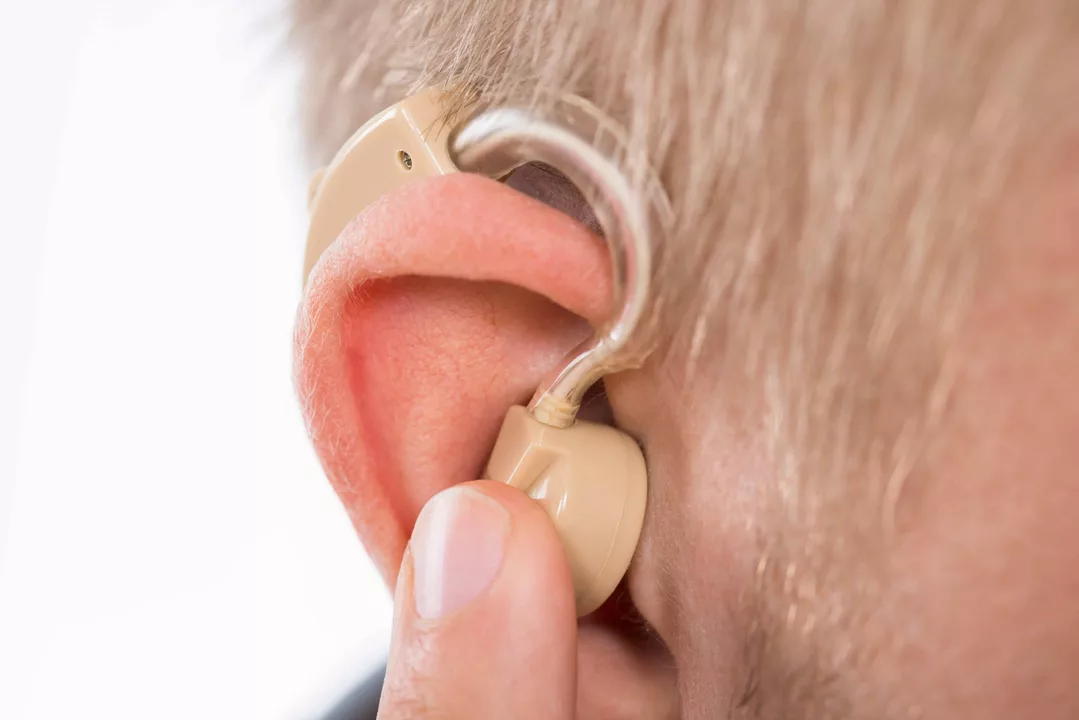The Link between Ototoxic Medications and Hearing Loss

Apr, 29 2023
Introduction to Ototoxic Medications and Hearing Loss
Ototoxic medications are drugs that can potentially harm the inner ear, causing temporary or permanent hearing loss. As a blogger focusing on health issues, I've come across many cases where patients and healthcare professionals have had to deal with the consequences of using these medications. In this article, I'll guide you through the various aspects of ototoxic medications and their link to hearing loss, including commercial drug examples, the symptoms, and how to protect your hearing.
Common Ototoxic Medications
There are various classes of drugs that have been found to be ototoxic. Some of the most common ones include:
1. Aminoglycoside Antibiotics
These powerful antibiotics are often used to treat severe infections, such as meningitis or sepsis. Examples include gentamicin, streptomycin, and neomycin. While these medications can be life-saving, they also carry the risk of causing hearing loss.
2. Loop Diuretics
Loop diuretics, like furosemide (Lasix), are used to treat medical conditions like heart failure and fluid retention. They work by increasing the amount of fluid expelled from the body through urination. However, they can also cause damage to the delicate structures of the inner ear.
3. Non-Steroidal Anti-Inflammatory Drugs (NSAIDs)
NSAIDs, such as ibuprofen and naproxen, are commonly used to relieve pain and inflammation. While generally safe for short-term use, prolonged consumption of high doses can lead to ototoxic effects and hearing loss.
4. Chemotherapy Drugs
Some chemotherapy drugs, like cisplatin and carboplatin, are known to be ototoxic. These medications are used to treat various types of cancer, but can also cause hearing loss in some patients.
Signs and Symptoms of Ototoxicity
When taking ototoxic medications, it's essential to be aware of the signs and symptoms of potential hearing damage. These may include:
- Tinnitus (ringing or buzzing in the ear)
- Difficulty understanding speech, especially in noisy environments
- Sudden or gradual hearing loss
- Dizziness or problems with balance
- Earache or pressure in the ears
If you or someone you know is experiencing any of these symptoms while on ototoxic medications, it's crucial to consult a healthcare professional immediately. Early intervention can help prevent further damage and potentially reverse any temporary hearing loss.
Monitoring and Testing for Ototoxicity
When taking ototoxic medications, regular monitoring and testing by healthcare professionals are necessary to detect any possible hearing loss. This may include:
- Audiometry: A hearing test that measures the ability to hear various sound frequencies
- Tympanometry: A test that evaluates the function of the middle ear
- Otoacoustic Emissions (OAE) Testing: A test that measures the sounds produced by the inner ear in response to sound stimulation
These tests can help identify any potential hearing damage early on and allow for appropriate adjustments to the treatment plan, if necessary.
Prevention and Protection Strategies
While ototoxic medications may be necessary for some patients, there are steps that can be taken to minimize the risk of hearing loss. These include:
- Using the lowest effective dose of the medication
- Regularly monitoring hearing function while on the medication
- Discussing alternative treatment options with your healthcare provider
- Protecting your ears from loud noises and using hearing protection when necessary
By implementing these strategies, you can help protect your hearing and reduce the risk of ototoxicity.
Managing Hearing Loss from Ototoxic Medications
If you or someone you know has experienced hearing loss due to ototoxic medications, it's essential to seek help from a healthcare professional or audiologist. They can provide guidance on managing the hearing loss and may recommend:
- Hearing aids
- Assistive listening devices
- Cochlear implants, in severe cases
- Aural rehabilitation programs to help with communication and coping strategies
With the right support and treatment, many people with hearing loss can continue to lead fulfilling lives.
Conclusion
Ototoxic medications play a crucial role in treating a variety of medical conditions. However, their potential to cause hearing loss must be acknowledged and managed carefully. By being aware of the risks, monitoring your hearing, and taking preventative measures, you can help minimize the impact of these medications on your hearing health.
